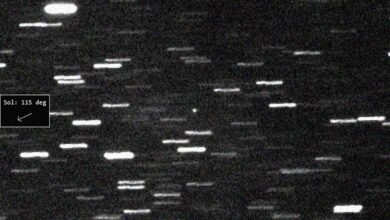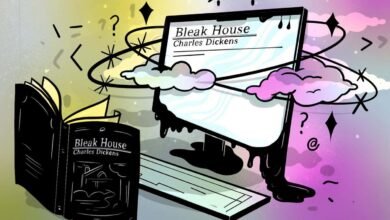The best popular science books of 2025 featuring Robert MacFarlane and Patrick McGee


Hang out: time to zone out with some intriguing and inspiring reading
LanaG/Alamy
Lone Wolf by Adam Weymouth
“He retains a sharp memory of the trap, last summer, his forefoot clamped and the utter terror, and of later waking, woozy, and the awful, human scent all over him, and the thing awkward around his neck… His brother was shot. He saw it happen. One-third of them, at least, die before their first year is out. Already he is a wolf that defies odds.”
This young wolf is Slavc, tracked by GPS on an epic walk from Slovenia through the Alps to arrive at the Lessinian plateau, north of Verona, Italy, months later.
Intrigued, Adam Weymouth follows Slavc’s route, creating his own epic. His is made of different but resonating strands: humans’ tricky relationship with nature and each other, a continent under environmental pressure – and the wolves, of course. Beautifully interwoven and lovingly written.
The Ideological Brain by Leor Zmigrod
Why are some people more likely to become radicalised or support extreme world views? This book shows how political neuroscience is probing our inflexibilities and dogmatisms. A key question posed by neuroscientist Leor Zmigrod is whether a person’s susceptibilities could “be rooted in their cognition and biology”.
One experiment she cites, published in 2008 in Science, suggests that more politically conservative people show a stronger reaction to threatening bursts of noise than those with more liberal views. Then there is the parallel between how easily we adapt to rule changes in a card-sorting game and how tightly we hang on to our political or social ideologies.
Now add these fascinating, if terrifying, findings to those of science historian Rebecca Lemov in her book The Instability of Truth.
This looks at 20th- and 21st-century mind control and hyper-persuasion, from the “invisible” brainwashing techniques used on US prisoners of war in North Korea in the 1950s to today’s “soft” brainwashing and behaviour modification that is brought on through our interactions with social media.
If the lessons of history in Lemov’s book coupled with the ongoing insights of the political neuroscientists are even half right, we should all be paying very, very close attention.
Nature’s Genius by David Farrier
Hope and adaptation are joined at the hip, as David Farrier argues that animals are changing fast under human pressure, and that we too must change our ways of life if we are all to thrive. “Climate change is altering the many ‘wild clocks’ that regulate migration, breeding and blossoming, but learning to coordinate our time with nature’s rhythms – to make time with a whole forest – would revolutionise our politics.” His pursuit of human plasticity makes for a bold vision.
Proof by Adam Kucharski
Determining whether something is true really is the point of science, wrote Jacob Aron in his review of this book. I love books on proof, and Adam Kucharski (a statistician and epidemiologist) is a great guide and storyteller. Abraham Lincoln, we learn, found Euclid’s Elements, with its definitions and axioms, irresistible because it created a way to construct seemingly universal truths from fundamental principles. Lincoln was to use one famous proof in his fight against slavery.
The Ocean’s Menagerie by Drew Harvell
Corals, sponges, worms, jellyfish, clams, crabs, octopuses and more – is it really possible that invertebrates make up 99 per cent of the diversity in the ocean? Yes indeed, says marine ecologist Drew Harvell, who wants to introduce them and their superpowers to us, in their habitats ranging from Hawaii to the Caribbean to Indonesia. There are also exquisite photos. Enjoy!
Apple in China by Patrick McGee
In the early 2000s, the world’s largest tech company shifted its manufacturing to the world’s second-largest economy. Apple’s presence in China could never be a simple story of getting ever richer by taking advantage of low wages and few rights for workers. And it isn’t, with this book cleverly exposing paradoxes around its subtitle: “The capture of the world’s greatest company”. While China did “capture” Apple, the company changed China by creating 5 million jobs, as it also altered the US’s future by fuelling Chinese tech development. Given the increasingly authoritarian regime of Chinese leader Xi Jinping, the ripples created by Apple’s achievement continue to criss-cross in today’s world of economic conflict.
Food Fight by Stuart Gillespie
Most books about the monolithic machine that is our food system argue that, in a very real sense, it is killing us. Designed in a different century to mass-produce cheap calories to avert famine, it is no surprise that it is creating ill health – like obesity and diabetes – and driving the climate crisis.
Where the books differ is in their rescue formula: what would a system look like that nourishes 8 billion people and the planet?
Stuart Gillespie seems more radical than most, writing that transformation without political change, without a shift in power, is “fake”, and what is discussed at conferences and in reports is transition, not transformation. Real change would involve major shifts in power across the system.
His manifesto includes fighting for proper nutrition and health to be enshrined in law, and not a “paper ” human right. Now that would be a real game-changer.
The Age of Diagnosis by Suzanne O’Sullivan
Everyone wants to know what’s wrong with them when they are sick. Not so fast, says neurologist Suzanne O’Sullivan, who thinks diagnosis can have serious downsides. Judging by her book’s popularity, she has tapped into something big.
In her work, and generally, O’Sullivan says she has observed the rise of conditions such as hypermobile Ehlers-Danlos syndrome and a range of novel genetic disorders, plus the massive increase in rates of diagnosis of ADHD, autism, depression and more. Other conditions, like cancer, diabetes, hypertension and dementia, also seem to be trending upwards. So what is going on?
O’Sullivan shows the span of her inquiries as she explores some most illuminating case studies, evidenced by her chapter headings: Huntington’s disease; Lyme Disease and Long Covid; Autism; The Cancer Gene; ADHD, Depression and Neurodiversity. There is even one called Syndrome Without a Name, describing vanishingly rare conditions that take years to label.
Labels are a big part of the problem, says O’Sullivan: they are of little value if they recruit people with mild versions of a condition, and sometimes there is nothing to offer anyway. What to do?
Here are a few of O’Sullivan’s prescriptions: stop expecting medicine to help us manage our disappointments; resist the medicalisation of normal life experiences; get doctors to rethink their specialisation silos, which can leave them de-skilled in general medicine; and spend money on people, not novel technologies. Stimulating and provocative.
The Price of Our Values by Augustin Landier and David Thesmar
This is an unusual book – to be written by economists, at least. Unlike everyday folk, economists like to separate their economic choices from moral ones. Their moral toolkit is utilitarianism. This holds that the most ethical choice is the one that will produce the greatest good for the greatest number: efficiency at the expense of values.
Here, they set out not to ignore values such as compassion, liberty and fairness, but to argue that to be fully ethical, our moral decisions must confront their cost implications. Their hope is that they can offer “a framework for processing moral values while taking economic constraints into account”. Now there’s a brave endeavour.
Battle of the Big Bang by Niayesh Afshordi and Phil Halper
Just in case – perish the thought – you haven’t quite got to grips with what happened to the universe 13.8 billion years ago, here’s a terrific round-up of just about every theory about the big bang: bouncing and cyclic universes, time loops, multiverses, string theory, black hole births and much more, written by a physicist with skin in the game (Afshordi) and a top science populariser (Halper).
Over 12 chapters, the authors explore what they call “science’s earliest memory”, when the universe “sprang forth from an infinitely dense inferno” and began to expand, never once looking back. For them it is about the “origin of our origins” – but also the need for a new physics. Their plan is to take us through a new landscape of ideas, where we discover the strengths and weaknesses of competing models and learn how science is done, including the rivalries and fights over tiny details of abstruse theories. And, of course (no spoilers), it all starts with what you think you mean by the big bang…
Is a River Alive? by Robert Macfarlane
The metaphors we choose say a lot about us. So when Robert Macfarlane, well-known for his nature books, asks if a river should be considered alive, then it is bound to make, er, a splash.
He travels the world to explore this idea and others like it, such as whether a forest might think, or a mountain remember. Rowan Hooper called it “beautiful, wild and wildly provocative” in his review, but worried Macfarlane might be trying to re-establish a form of animism in an attempt to make us treat non-human life better. Better look to good ecological thinking and science instead, says Hooper. Over to you!
Love reading? Come and join our friendly group of fellow book lovers. Every six weeks, we delve into an exciting new title, with members given free access to extracts from our books, articles from our authors and video interviews. Topics:
New Scientist book club
Source link













